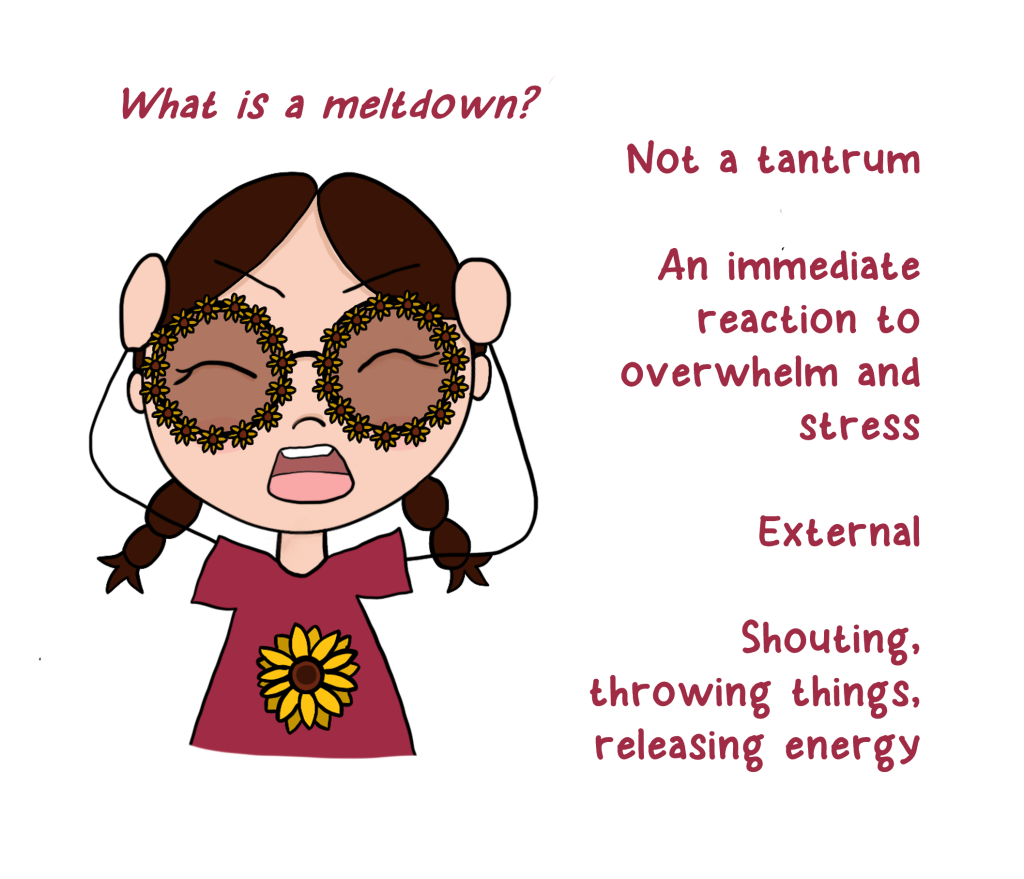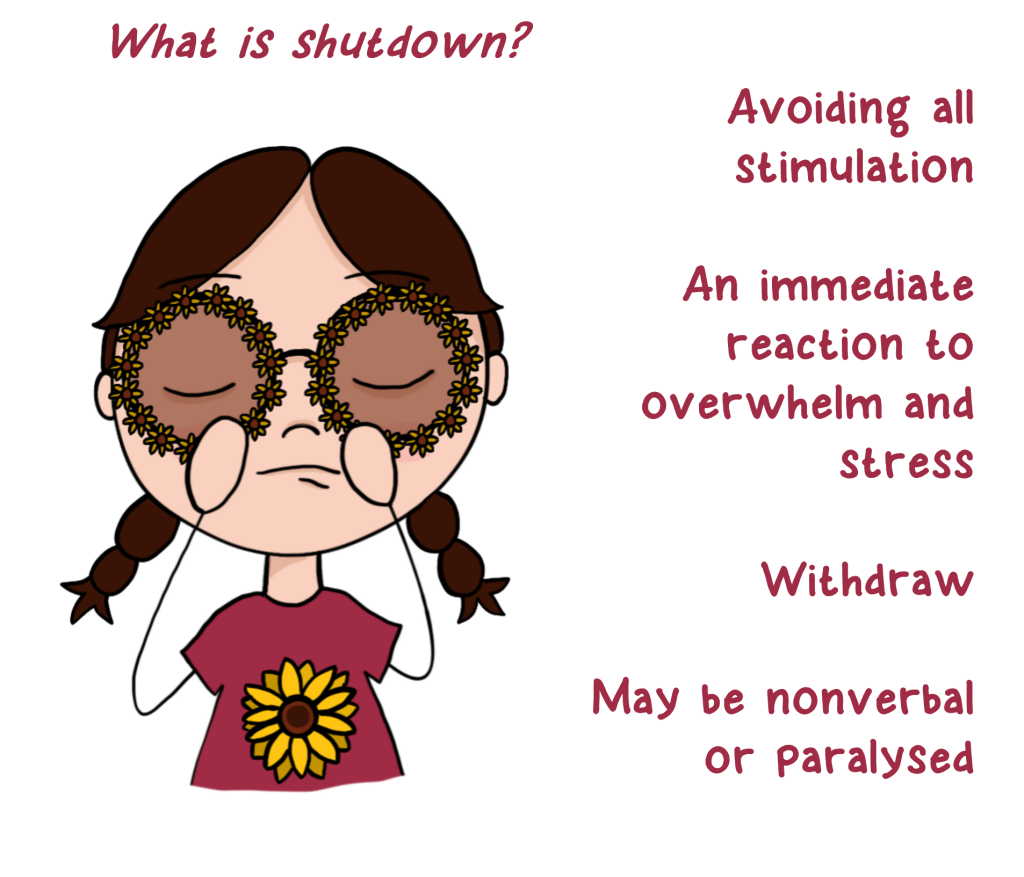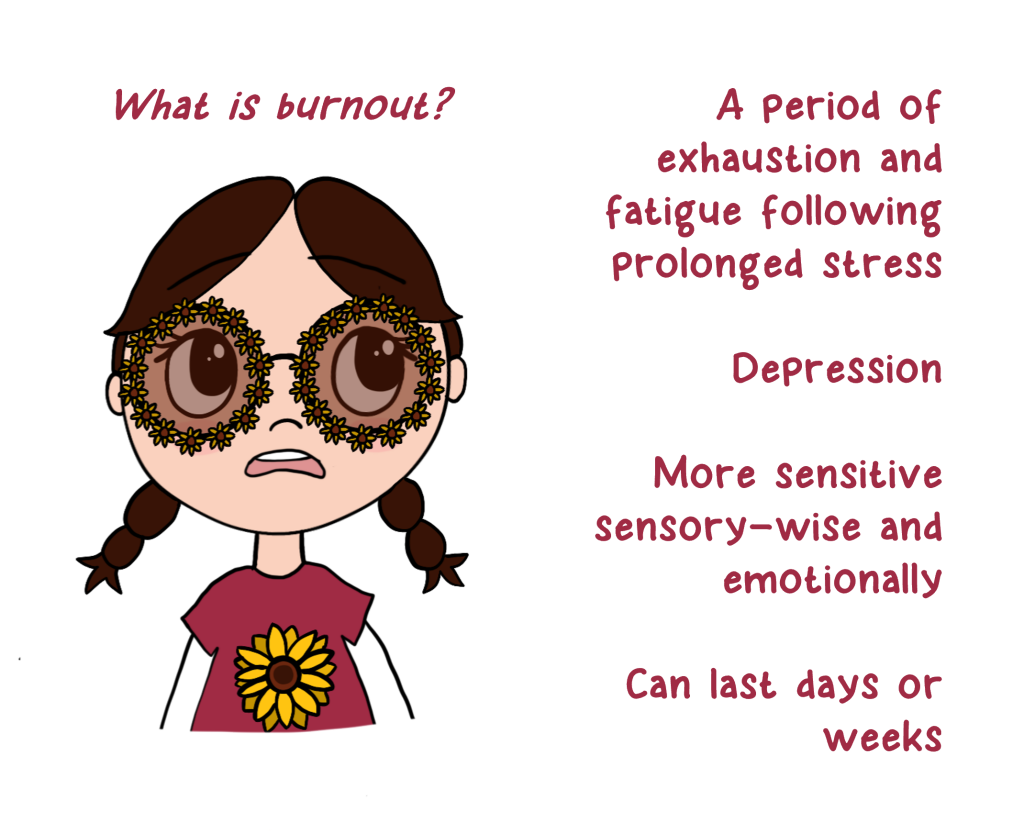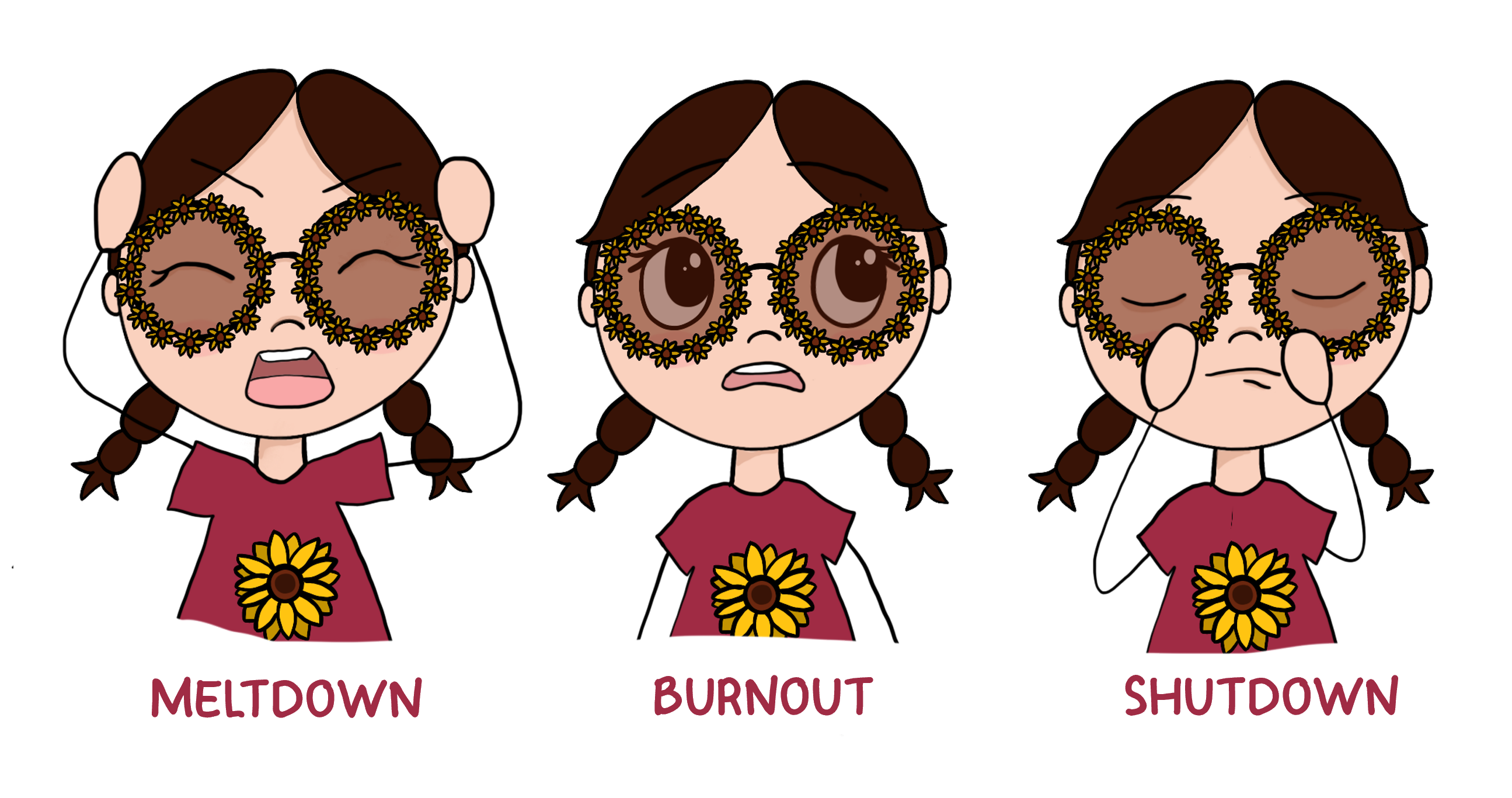Meltdown, Shutdown, and Burnout
All three of these terms describe experiences of autistic individuals, in response to having to manage in the largely neurotypical world we live in. Everyday life and occurences can present real challenges – leading us to become emotionally, sensorily, or socially overwhelmed. When this happens, we can have meltdowns, shutdowns, or experience burnout. I think it’s so, so important to remember these are normal, and to not blame or punish ourselves when we go through them.

What is a meltdown?
Meltdowns are an instant reaction to a very distressing situation or event. They are outward displays of all our emotions, and can be very violent. Common experiences include screaming, wailing, hitting things, throwing objects, shaking one’s hands, and feeling the need to let out a lot of energy. They are extremely physically tiring, and emotionally draining. As a child these were common experiences for me, particularly when I didn’t get up at the ‘right time’, and I would scream and cry and throw toys and cushions around my room.

What is a shutdown?
Shutdowns are, like meltdowns, instant reactions to distressing situations and events. However, they differ because they are inward, internal responses. One feels so unable to process anything, and tries to avoid all stimulation – they withdraw. You may become nonverbal or even feel unable to move at all, and want to hide in darkness in a corner. I will often go into a ‘foetal position’ and gently rock back and forth.

What is burnout?
Burnout seems to be less known than meltdowns and shutdowns, but that’s not to say it isn’t as common. It is more of a slow response to a period of stress and being overwhelmed, perhaps from masking constantly, or doing too many social things, or working too hard. Burnout can come in different forms, but usually feels like an intense exhaustion, and/or depression. People can feel irritable, anxious, very low in mood, unable to concentrate, unable to focus on tasks, very tired, forgetful, unmotivated, and more sensitive to stresses like sensory sensitivies and changes to routine.
If you’d like to know more about these, an interesting research study was carried out, which looked at eight different autistic young individuals’ experiences of meltdown, shutdown, and burnout – Phung, J., Penner, M., Pirlot, C. and Welch, C., 2021. What I Wish You Knew: Insights on Burnout, Inertia, Meltdown, and Shutdown From Autistic Youth. Frontiers in Psychology, 12.

Leave a Reply